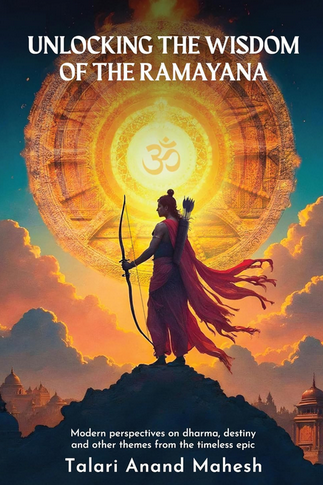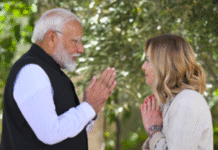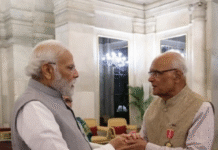NEW DELHI– For centuries, the Ramayana has stood as one of India’s most revered epics, shaping the country’s cultural and spiritual identity through countless retellings, stage performances, and adaptations across visual media. Yet beneath its familiar themes of divine duty, good versus evil, and cosmic struggle, the text offers deeper lessons for everyday life — insights that often get overlooked.
That is the focus of Unlocking the Wisdom of the Ramayana (One Point Six Technologies Pvt. Ltd; 228 pages; Rs 455), by marketing strategist and storyteller Talari Anand Mahesh. Rather than retelling the saga in its entirety, Mahesh distills lessons from Valmiki’s classic — exploring not only the actions of heroes like Rama and Sita, but also the choices of villains and even minor characters.
Mahesh argues that the Ramayana is “full of knowledge, far richer than what any visual medium can capture,” and that readers today need fresh approaches to engage with its teachings. “Every word, tale, and side story in these texts offer lessons that many people overlook because they cannot take the time to read the complete texts or because of the limitations of visual media,” he notes.
Drawing inspiration from Bibek Debroy’s acclaimed translation of Valmiki, Mahesh takes what he calls “creative liberties” to adapt passages and dialogue for a modern audience. His goal is not to present an exhaustive or definitive interpretation, but rather to highlight principles that can guide both personal and professional life.
The book opens with Valmiki’s own discovery of his ability to compose the epic, followed by a concise overview of its seven kandas, from Bala Kanda through the disputed Uttara Kanda. From there, Mahesh extracts more than 40 lessons covering themes such as ethics, humility, forgiveness, diplomacy, decision-making, stress and serenity, and the balance between duty and luxury.
In the end, Unlocking the Wisdom of the Ramayana challenges readers to look beyond the familiar “victory of good over evil” and reflect on enduring values that transcend time. Mahesh’s effort lies not in retelling the epic but in prompting us to ask what it can still teach about how we live today. (Source: IANS)












